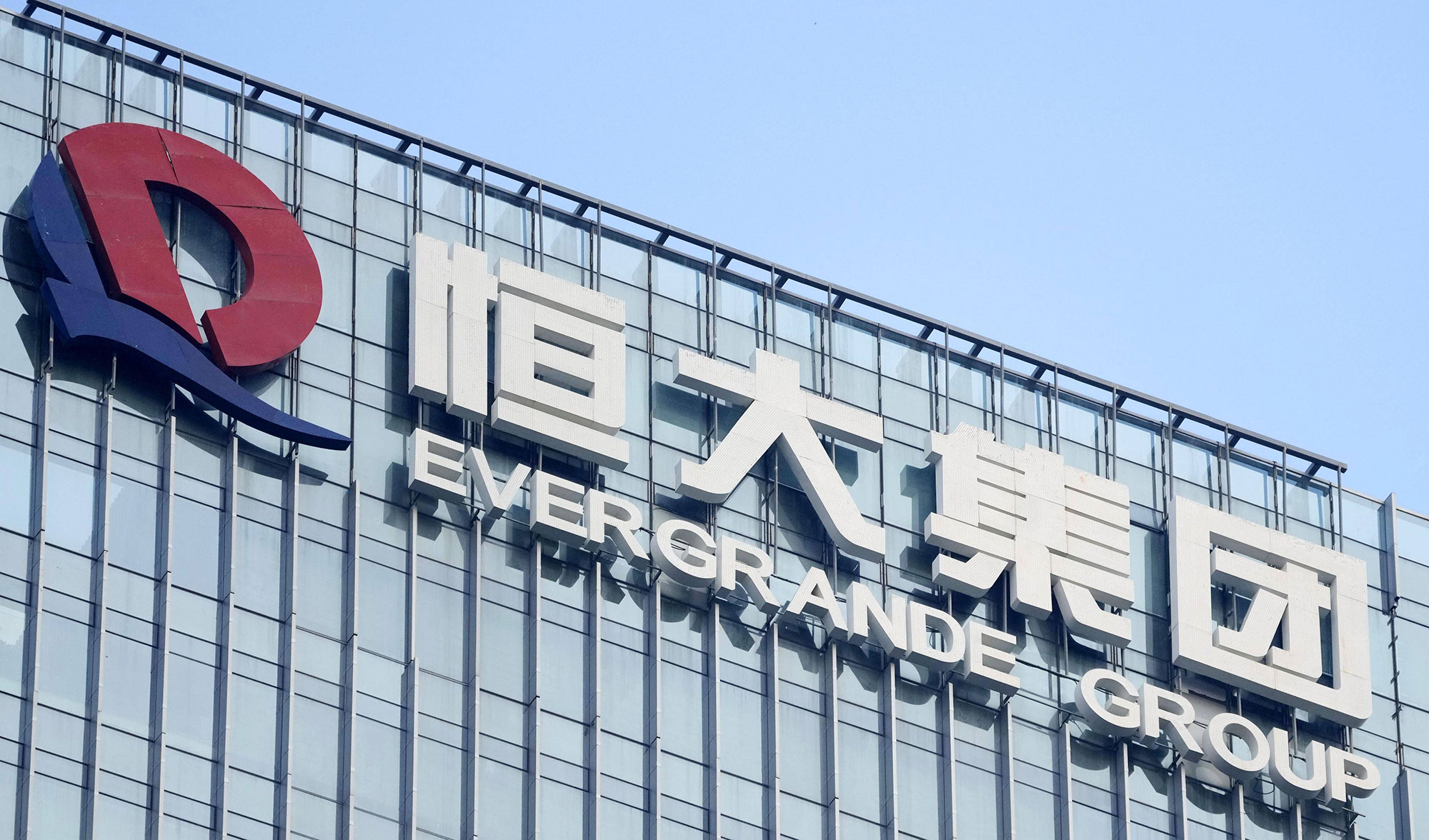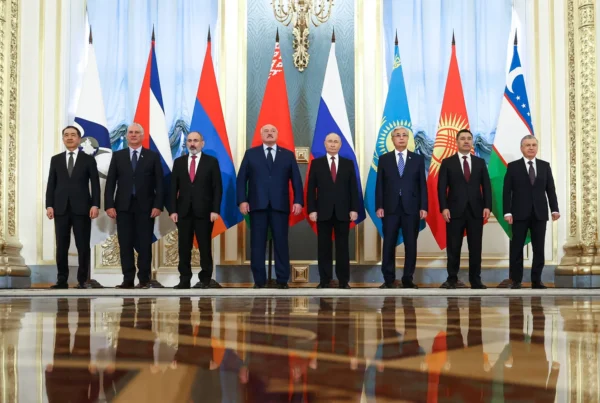Despite meeting its interest payment deadlines on two of its bonds on 10 November, Evergrande is on the brink of a default crisis that threatens to further damage the Chinese real estate sector and global economy. The real estate giant’s debt and related risk can negatively impact the international financial system. It is unclear how Evergrande and China will mitigate this.
By Lena Krikorian 19.11.2021
A few weeks ago, China’s second largest property developer known as China Evergrande Group (Evergrande) was on the brink of financial collapse and discontinued many of its projects throughout the country. On 29 October 2021, Evergrande made an interest payment for an offshore bond that could have caused the world’s second-largest emerging market corporate debt default, if not paid on time. Its bond prices have tumbled by around 80% this year and have been downgraded by global credit ratings agencies.
According to BBC, Evergrande owes money to at least 171 domestic Chinese banks and 121 financial firms, and is at risk of bankruptcy. If Evergrande defaults, it could run into a “credit crunch” where companies have difficulty with borrowing money. This type of financial fallout would present challenges for the world’s second largest economy because companies would struggle to grow, and Chinese developers and foreign investors may be deterred from investing in the country’s property sector.
On 24 October, it resumed construction on ten sites in an effort to reassure nervous investors on the status of their shares and ongoing projects after the company had suspended construction on hundreds of projects on 31 August. Chinese homebuyers are becoming increasingly anxious over the real estate holding company’s volatile situation. Evergrande is the world’s most indebted property developer and is holding over 300 billion USD in debt in the form of illiquid liabilities, 80 percent of which are short-term.
When Evergrande missed an interest payment to foreign bondholders on 23 September, global financial markets tanked, leaving foreign investors deeply concerned over the potential risks of the property giant in crisis. China’s property market is a major part of the country’s economic growth trajectory, and when Evergrande’s debt crisis began, other Chinese developers were impacted with some slipping into formal default. According to the Institute of International Finance, China’s corporate sector holds USD 27 trillion in debt, which is a debt-to-GDP ratio of 159 percent. The Chinese property sector is massive, accounting for a quarter of its GDP at USD 5 trillion.
Experts estimate that Evergrande has a debt of over USD 300 billion. Only by making an USD 83.5 million interest payment to bondholders on 29 October could it avoid default – for now. This payment was made the day before a 30-day grace period ended, during which many expected the real estate giant to enter a default based on the previously missed bond payment. Missing this key payment could have caused an incident akin to the bankruptcy of Lehman Brothers investment bank in 2008 which led the global financial market into a liquidity crisis.
Formerly known as the Hengda Group, Evergrande was founded in 1996 as a small company in Guangzhou, southern China. If Evergrande were to go under, its 1300 ongoing real estate projects in approximately 280 cities could be halted, along with its other activities such as outdoor housing, electric vehicles, sports and theme parks, and a food and beverage business that sells groceries and other goods across China. As the company struggles to find funds and those willing to purchase its assets, China’s central bank, the People’s Bank of China, accused Evergrande of having poor management and not properly accounting for changes in market conditions. However, if Evergrande fails, over one million Chinese home buyers who bought apartments from the company and are waiting for them to be built won’t have homes. A collapse would also impact the construction workers and subcontractors that are waiting to be paid.
The ongoing developments with Evergrande can be seen as an example of a clear shift in Beijing’s economic strategy and policies. Previously, the Communist Party promoted the use of municipal borrowing sprees to boost GDP, but Beijing has recently changed its economic policy to give the state more control and benefits over private enterprise, and Evergrande is struggling to adapt to new government restrictions that reduce excessive borrowing in the real estate sector. As countries and the global economy are already dealing with the negative impacts of the COVID-19 pandemic, Evergrande’s near bankruptcy raises questions regarding Beijing’s economic policies.
China’s financial system already experiences high growth rates coupled with soaring debt and inefficiency, particularly financial waste and losses. The rising levels of local government debt to USD 8.2 trillion have sparked major concern over China’s tightening grip on its economy. The government’s increasing of its controlling measures are also viewed as an attempt to combat shadow banking – financial activities that occur outside the scope of federal regulators and formal banking institutions, which accounts for more than USD 1 trillion in low risk, high yield products. The looming Evergrande crisis and local government debt issues are creating significant economic challenges for Beijing.
With the economy on shaky grounds, China is conflicted on how to manage looming debt and uncertain financial planning in key sectors. Over the past 10 years, the country has slowly opened up in some industries while retrenching in others. China has experienced approximately 6 percent GDP annual growth rates between 2014 to 2019, and it dropped to 2.3 percent in 2020 according to the World Bank. On top of the slumping GDP growth rate in 2020, there is increased unemployment, inflation, and tightened access to credit. Its state-controlled economy and lack of transparent market projections create potential complications in the property sector and in today’s increasingly globalized market.
The property sector in China is still in crisis. Another property giant in China called Kaisa Group missed a payment to investors on 4 November and is also at risk of default, with two major payments due next Thursday and Friday. While the uncertainty of Evergrande’s fate is troubling, the long-term impacts of Beijing’s political agenda could damage the global economy. China’s government fears that a default could amplify the shadow-banking industry and cause job losses in the private sector. Even though the regime views excessive borrowing as a security risk and considers a centralized power system as necessary to manage crises, its broad agenda to reassert state control over the economy jeopardizes the international financial system, as evidenced by the Evergrande ongoing-crisis.





